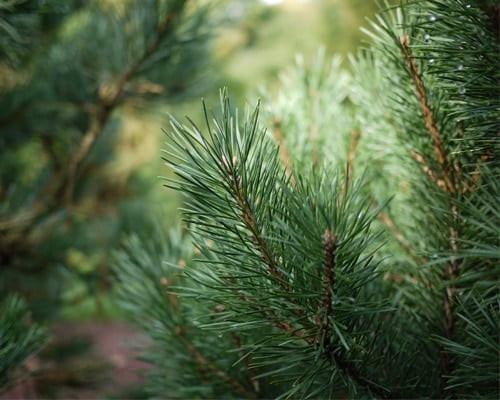Black flies can be a real nuisance, especially during outdoor activities, but how can you prevent black flies? Preventing black fly bites involves a combination of protective measures and repellents, and flyermedia.net can help you learn the best ways to avoid these pests and protect yourself and your loved ones. Discover effective prevention tips, natural remedies, and the latest research on black fly control.
1. Understanding Black Flies
What are black flies, and why are they such a problem? Black flies, also known as buffalo gnats or turkey gnats, are small, blood-feeding insects that thrive in fast-flowing water sources. Their bites can be painful and itchy, making outdoor activities miserable. Unlike mosquitoes, black flies don’t transmit diseases to humans in North America, but their bites can cause allergic reactions and secondary infections from scratching.
Black flies are small insects, typically around 1/8 inch long, and are most active during daylight hours. They are attracted to carbon dioxide, body odor, and dark clothing. According to Penn State Extension, black flies are a significant nuisance in areas near rivers and streams. The key to preventing black fly bites is understanding their behavior and taking appropriate protective measures.
2. When and Where are Black Flies Most Active?
When and where do black flies thrive? Black flies are most active from mid-May to July in many regions, especially in the northern U.S. and Canada. These pests breed in fast-flowing, clean water like rivers and streams, making wooded areas near these water bodies prime habitats.
Their activity peaks during the day, particularly in the morning and late afternoon. According to the University of New Hampshire, black fly populations are influenced by weather conditions, with warmer temperatures and high humidity favoring their development. To minimize exposure, plan outdoor activities during less active times or choose locations away from water sources.
3. Effective Strategies to Prevent Black Fly Bites
What are some tried-and-true methods to keep black flies away? Effective prevention of black fly bites includes wearing protective clothing, using insect repellents, and avoiding peak activity times. Long sleeves, pants, and hats with netting can create a physical barrier.
Insect repellents containing DEET or permethrin are often recommended, although their effectiveness can vary. Some natural repellents, like vanilla extract or pine extract, may also offer some protection. Additionally, fans can help disrupt their flight patterns, as noted by the Farmers’ Almanac. Protecting your skin and using appropriate repellents are crucial steps in preventing black fly bites.
4. Protective Clothing: Your First Line of Defense
How does clothing act as a barrier against black flies? Wearing long sleeves, pants, and light-colored clothing can significantly reduce your risk of black fly bites. Black flies are attracted to dark colors, so opting for lighter shades like khaki, tan, or white can make you less appealing.
A hat with attached netting is particularly useful for protecting your face and neck, areas that are often targeted by swarming black flies. Outdoor enthusiasts in black fly-prone areas often rely on this method. Protecting your skin with the right clothing is a simple yet effective way to avoid bites.
 Mountain Bike – Bicycle
Mountain Bike – Bicycle
Wearing light-colored clothing and long sleeves while biking can help prevent black fly bites.
5. Insect Repellents: DEET and Alternatives
What types of insect repellents work best against black flies? Insect repellents containing DEET are commonly recommended for preventing black fly bites, but their effectiveness can be unpredictable. Some individuals report that DEET even attracts black flies, so it’s essential to test and see what works best for you.
Permethrin-based repellents are more effective but also more toxic and should be used with caution. Natural alternatives like lemon eucalyptus oil can provide some protection, although they may not last as long as DEET. According to the EPA, it is important to follow the label instructions when applying any insect repellent. Choosing the right repellent and applying it correctly can make a big difference in preventing bites.
6. Natural Repellents: Vanilla, Pine, and More
Are there natural ways to repel black flies without harsh chemicals? Yes, several natural repellents can help keep black flies away. Vanilla extract, lavender, and pine extract are often recommended. Simply rub the extract from pine branches on your skin for a natural barrier.
Other options include citronella oil and neem oil, which have insect-repelling properties. While these natural remedies may not be as potent as DEET, they are a safer alternative for those concerned about chemical exposure. According to a study in the Journal of Economic Entomology, some essential oils can provide significant protection against insect bites.
 Pinus sylvestris – Conifers
Pinus sylvestris – Conifers
Pine needles contain natural compounds that can help repel black flies.
7. The Power of Fans: Creating a Black Fly-Free Zone
Can a simple fan keep black flies away? Yes, using a fan can be an effective and chemical-free way to keep black flies away from your porch or outdoor area. Fans work by disrupting the flight patterns of these insects and blowing away the carbon dioxide that attracts them.
An oscillating pedestal fan or box fan can create a zone where it’s difficult for black flies to fly. This method is particularly useful for outdoor gatherings or relaxing on your porch. The constant airflow makes it harder for the flies to land and bite.
8. Dietary Changes: Garlic and Apple Cider Vinegar
Can what you eat help repel black flies? Some anecdotal evidence suggests that consuming garlic or apple cider vinegar (ACV) may help repel black flies. Eating a clove of garlic each day, starting several days before exposure, may cause your body to release a sulfur compound that masks your natural scent.
Similarly, taking a tablespoon of apple cider vinegar three to four times a day may help your skin ward off biting insects. While scientific evidence is limited, many people swear by these remedies. However, it’s essential to consult with a healthcare professional before making significant dietary changes.
 Apple Cider Vinegar in a bowl next to an apple
Apple Cider Vinegar in a bowl next to an apple
Apple cider vinegar is a popular home remedy believed to help repel black flies.
9. Avoiding Attractants: Perfumes and Sugary Drinks
What attracts black flies, and how can you avoid these attractants? Black flies are attracted to sweet-smelling perfumes, fabric softeners, and sugary drinks. Avoiding these attractants can help reduce your risk of being bitten.
When outdoors, avoid wearing heavily scented products and limit your consumption of candy and soft drinks. Black flies are also drawn to carbon dioxide, so minimizing physical exertion can help reduce your appeal. Being mindful of these attractants can significantly lower your chances of attracting black flies.
 Soft Drink – Cola
Soft Drink – Cola
Sugary drinks can attract black flies, so it’s best to avoid them when outdoors.
10. Soothing Black Fly Bites: Relief and Remedies
What should you do if you get bitten by a black fly? Black fly bites often result in itchy welts that can be quite uncomfortable. To soothe the itch, wash the affected area with soap and warm water.
Avoid scratching the bites to prevent breaking the skin and increasing the risk of infection. Apply a topical agent like aloe vera, witch hazel, or calamine lotion for relief. If the itching persists, an antihistamine cream may be necessary. According to the American Academy of Dermatology, keeping the area clean and avoiding scratching are essential for proper healing.
11. Professional Pest Control: When to Call in the Experts
When is professional pest control necessary for black flies? In some cases, black fly infestations may be severe enough to warrant professional pest control. This is especially true if you live near a large body of water where black flies breed.
Pest control experts can use larvicides to target black fly larvae in the water, reducing the overall population. However, these treatments should be used with caution, as they can also affect other aquatic organisms. If you’re experiencing a significant black fly problem, consult with a qualified pest control service to determine the best course of action.
12. Community Control Programs: A Coordinated Effort
Are there community-level efforts to control black fly populations? Some communities implement control programs to reduce black fly populations, particularly in areas where these insects are a significant nuisance. These programs often involve the use of environmentally friendly larvicides applied to rivers and streams.
The goal is to target the black fly larvae without harming other aquatic life. Community control programs can be an effective way to manage black fly populations on a larger scale. According to the New York State Department of Health, these programs require careful planning and monitoring to ensure their effectiveness and safety.
13. Black Flies vs. Mosquitoes: Key Differences
How do black flies differ from mosquitoes, and why does it matter? Black flies and mosquitoes are both blood-feeding insects, but they have distinct characteristics and behaviors. Black flies are smaller and typically bite during the day, while mosquitoes are often larger and more active at dawn and dusk.
Black flies breed in fast-flowing water, whereas mosquitoes breed in stagnant water. Understanding these differences is crucial for implementing effective control measures. What works for mosquitoes may not work for black flies, and vice versa.
14. The Role of Water Management in Black Fly Control
How can managing water sources help control black fly populations? Since black flies breed in fast-flowing water, managing these water sources can help control their populations. This may involve altering water flow, removing vegetation, or using larvicides in targeted areas.
However, it’s essential to consider the environmental impact of these measures. Altering water flow can affect other aquatic organisms, and larvicides can harm non-target species. Careful planning and monitoring are necessary to ensure that water management strategies are effective and environmentally responsible.
15. Understanding Black Fly Biology: Life Cycle and Habits
What is the life cycle of a black fly, and how does this knowledge aid in prevention? Black flies have a complex life cycle that includes egg, larva, pupa, and adult stages. The larvae attach to submerged rocks and vegetation in fast-flowing water.
Understanding this life cycle allows for targeted control measures, such as larviciding. By targeting the larvae, it’s possible to reduce the adult black fly population. The University of Maine Cooperative Extension provides detailed information on black fly biology and control strategies.
16. The Impact of Climate Change on Black Fly Populations
How might climate change affect black fly populations? Climate change can influence black fly populations in several ways. Warmer temperatures may extend their breeding season, leading to longer periods of activity. Changes in precipitation patterns can affect water flow, potentially creating more breeding habitats.
Understanding these potential impacts is crucial for developing long-term control strategies. As climate change continues, it’s likely that black fly populations will become more challenging to manage. According to the EPA, climate change is expected to alter the distribution and abundance of many insect species.
17. Black Fly Allergies: Recognizing and Treating Reactions
Can black fly bites cause allergic reactions, and how are they treated? Some people are highly allergic to black fly bites and may experience severe reactions. Symptoms can include intense itching, swelling, hives, and even difficulty breathing.
In severe cases, medical attention may be necessary. Treatment typically involves antihistamines, corticosteroids, and, in rare instances, epinephrine. Recognizing the symptoms of an allergic reaction and seeking prompt treatment is crucial. According to Mayo Clinic, severe allergic reactions require immediate medical care.
18. Black Flies and Livestock: Protecting Animals from Bites
How do black flies affect livestock, and what can be done to protect them? Black flies can be a significant nuisance for livestock, causing stress, reduced feeding, and decreased productivity. In severe cases, they can even cause anemia due to blood loss.
Protecting livestock involves using insect repellents, providing shelter during peak activity times, and implementing control measures in breeding areas. Farmers and ranchers should consult with veterinarians and pest control experts to develop effective strategies for managing black fly populations. According to the USDA, black flies can have a significant economic impact on livestock operations.
19. DIY Black Fly Traps: Are They Effective?
Can you build your own black fly traps, and do they work? Several DIY black fly trap designs are available online, but their effectiveness can vary. Some traps use sticky surfaces or attractants to capture black flies.
While these traps may catch some black flies, they are unlikely to significantly reduce the overall population. They can be a supplemental tool, but they should not be relied upon as the primary method of control. The University of Minnesota Extension offers guidance on evaluating the effectiveness of different pest control methods.
20. Debunking Black Fly Myths: What Really Works
What are some common myths about black flies, and what actually works to prevent bites? Many myths surround black fly control, such as using dryer sheets or certain types of clothing. However, scientific evidence often contradicts these claims.
The most effective methods for preventing black fly bites include wearing protective clothing, using insect repellents, and avoiding peak activity times. Relying on proven strategies is essential for protecting yourself and your family. According to the CDC, it’s important to base your pest control decisions on scientific evidence rather than anecdotal claims.
21. Legal Considerations: Insecticide Use and Regulations
What are the regulations surrounding insecticide use for black fly control? The use of insecticides for black fly control is subject to various regulations at the federal, state, and local levels. These regulations aim to protect human health and the environment.
Before using any insecticide, it’s essential to understand the applicable regulations and follow label instructions carefully. Some insecticides may be restricted or prohibited in certain areas. The EPA provides information on pesticide regulations and safe use practices.
22. Case Studies: Successful Black Fly Control Programs
What can we learn from communities that have successfully managed black fly populations? Several communities have implemented successful black fly control programs using integrated pest management strategies. These programs often involve a combination of larviciding, water management, and public education.
By studying these case studies, other communities can learn valuable lessons about effective black fly control. The key is to develop a comprehensive plan that addresses the specific challenges and environmental conditions of the area. The National Pest Management Association offers resources and information on integrated pest management.
23. Long-Term Strategies: Sustainable Black Fly Management
How can we manage black fly populations in a sustainable way? Sustainable black fly management involves using environmentally friendly methods that minimize harm to non-target species. This includes using biological larvicides, such as Bacillus thuringiensis israelensis (Bti), which is specific to black fly larvae.
It also involves protecting and restoring natural habitats that support black fly predators, such as certain fish and insects. By adopting a long-term, holistic approach, it’s possible to manage black fly populations without causing significant environmental damage. The Xerces Society promotes sustainable pest management practices that protect beneficial insects.
24. Staying Informed: Reliable Sources for Black Fly Information
Where can you find reliable information about black flies and their control? Staying informed is crucial for effectively managing black fly populations. Reliable sources of information include university extension services, government agencies, and pest control professionals.
These sources can provide up-to-date information on black fly biology, control methods, and regulations. By consulting these resources, you can make informed decisions about protecting yourself and your community. flyermedia.net is a great resource, with more information about pest control for aviation, where pests can damage or cause malfunctions in aircraft.
25. Innovations in Black Fly Research: What’s on the Horizon?
What new research and technologies are being developed for black fly control? Researchers are constantly exploring new and innovative ways to control black fly populations. This includes developing more effective and environmentally friendly larvicides, as well as exploring the use of genetic control methods.
Advances in technology, such as remote sensing and drone-based surveillance, are also being used to monitor black fly populations and target control efforts more effectively. Staying abreast of these developments can help you stay ahead of the curve in the fight against black flies. The Entomological Society of America publishes research on insect biology and control.
FAQ: Your Questions About Black Flies Answered
1. What exactly are black flies?
Black flies are small, blood-feeding insects that thrive near fast-flowing water, known for their painful bites.
2. When are black flies most active?
Black flies are most active from mid-May to July, particularly during daylight hours.
3. What’s the best way to protect myself from black fly bites?
Wear protective clothing like long sleeves and hats with netting, use insect repellents, and avoid peak activity times.
4. Do natural repellents work against black flies?
Yes, some natural repellents like vanilla extract, lavender, and pine extract can offer protection.
5. Can fans really keep black flies away?
Yes, fans disrupt black fly flight patterns, making it harder for them to bite.
6. Does eating garlic or apple cider vinegar repel black flies?
Some people believe these remedies help, but scientific evidence is limited.
7. What should I do if I get bitten by a black fly?
Wash the area with soap and water, avoid scratching, and apply topical treatments like aloe vera or calamine lotion.
8. When should I call a pest control expert for black flies?
If you have a severe infestation, professional pest control can help manage the population.
9. How do black flies differ from mosquitoes?
Black flies breed in fast-flowing water and are active during the day, while mosquitoes breed in stagnant water and are active at dawn and dusk.
10. Are black fly bites dangerous?
While they don’t transmit diseases in North America, bites can cause allergic reactions and secondary infections if scratched.
Conclusion: Taking Control of Black Flies
Preventing black fly bites requires a multifaceted approach that includes protective clothing, effective repellents, and an understanding of black fly behavior. By implementing these strategies, you can reduce your risk and enjoy the outdoors without the nuisance of black flies. Remember, staying informed and adapting your approach as needed is key to successfully managing these pests. For more information and resources on pest control and aviation, visit flyermedia.net today.
 Black fly – Fly
Black fly – Fly
Using a hat with netting is an effective way to protect your face from swarming black flies.
